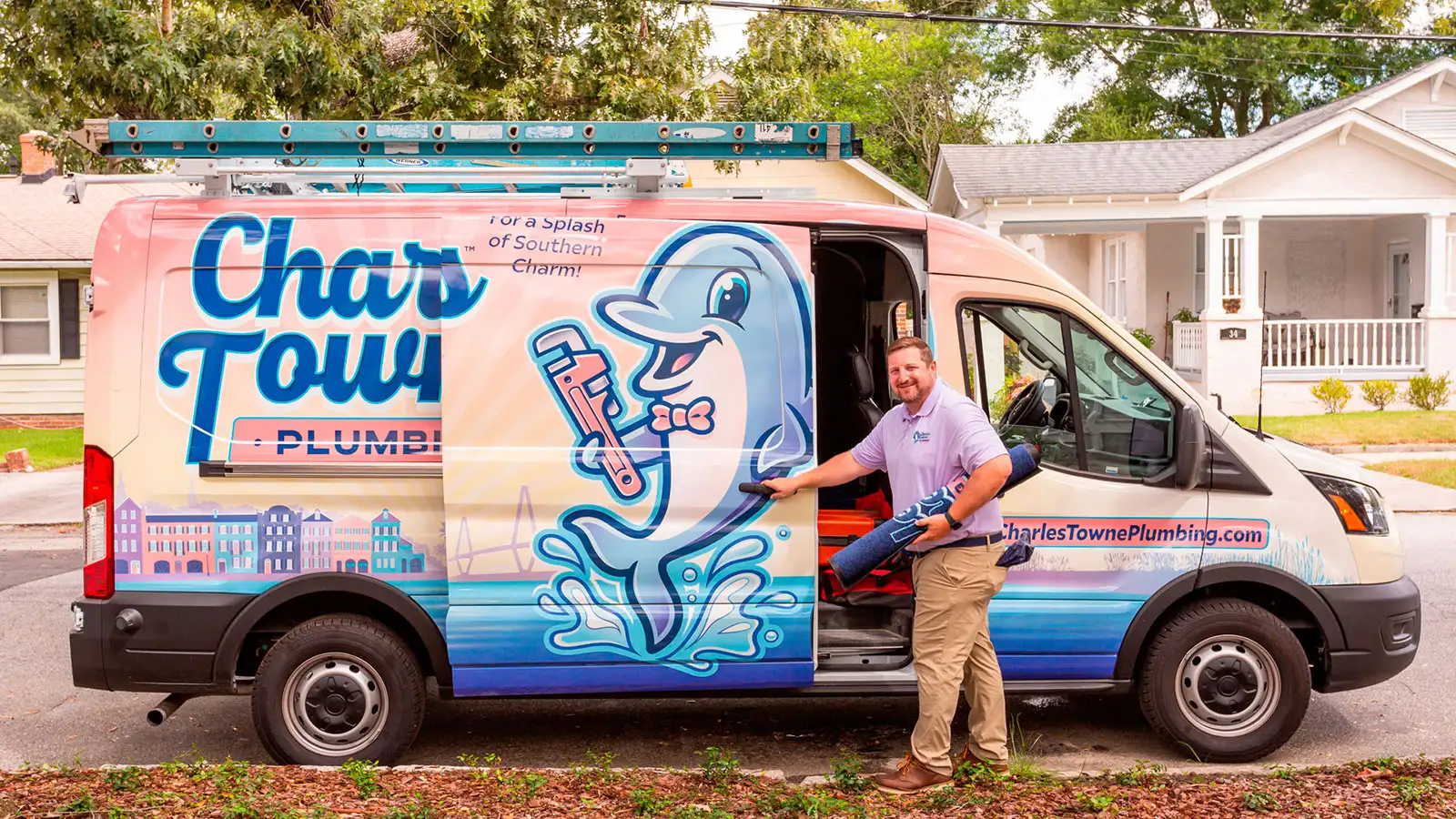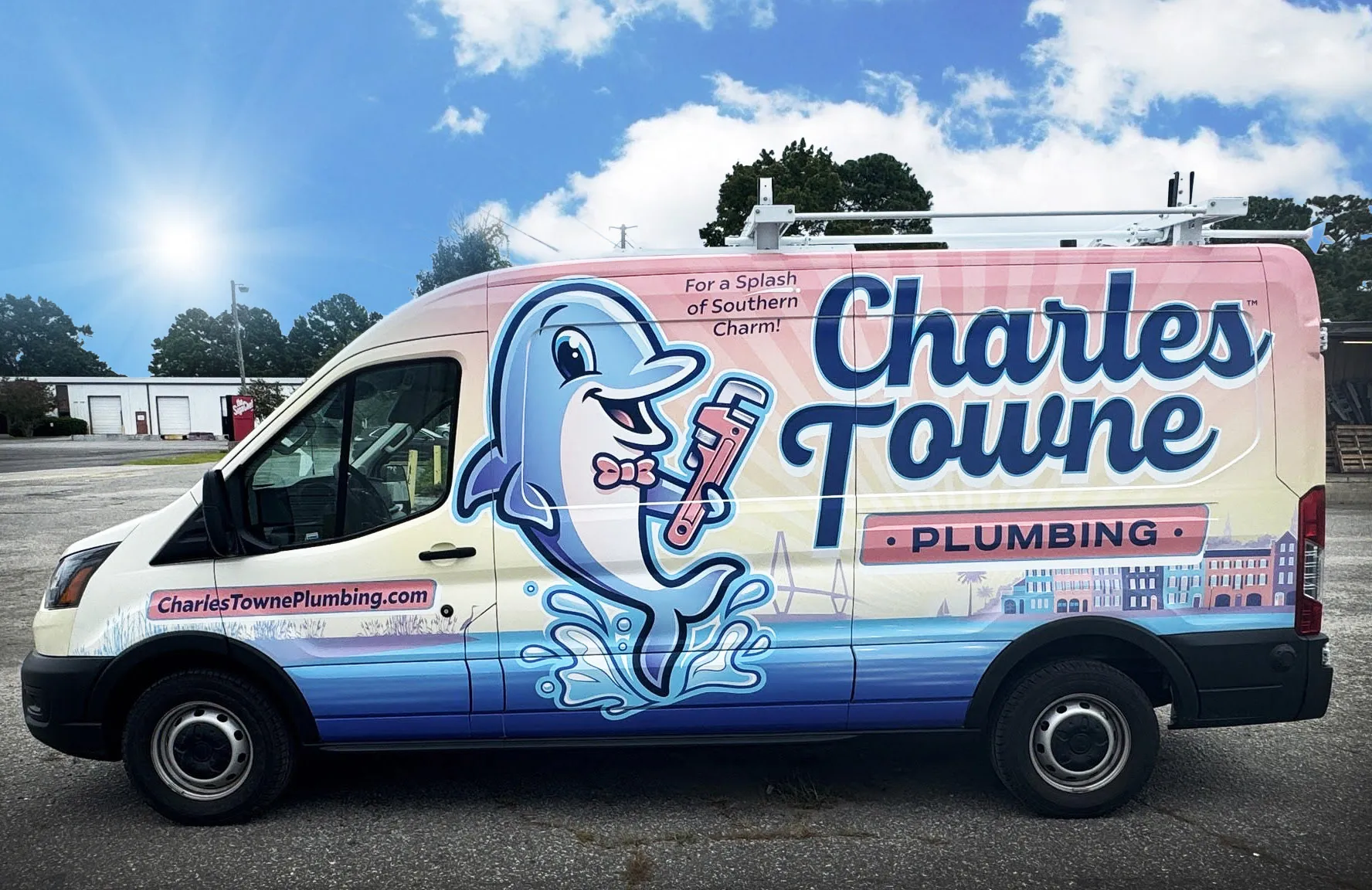Warren
November 10, 2025

When your water heater isn’t working right, it can throw a wrench in your daily routine, hike up your utility bills, and even create safety hazards. In this guide, we’ll help you identify whether your water heater needs a repair or a full replacement. You’ll learn to spot early warning signs, weigh the pros and cons of repair versus replacement, handle emergencies, and extend the life of your equipment with preventative maintenance. We’ll cover common symptoms—from leaks and rusty water to odd noises—explain when a unit has reached the end of its efficiency, and show how Charles Towne Plumbing’s emergency and preventative services can get your hot water back on track. This roadmap will guide you through diagnostic clues, cost considerations, decision-making strategies, and why choosing certified technicians in Charleston, SC, guarantees a quick response and clear pricing.
Being able to recognize the key symptoms of a failing water heater allows homeowners to tackle minor issues before they turn into expensive replacements. Leaks, temperature swings, and strange sounds often indicate internal corrosion, sediment buildup, or component failure. Keeping an eye on water quality and energy bills can reveal declining efficiency, while unpleasant odors may signal bacterial growth or anode rod deterioration. Catching these problems early can help you avoid tank ruptures and prepare you to reach out for professional repair or replacement services.
Water heater leaks typically occur where seams, valves, or connections fail, leading to water pooling at the base or dripping from the top.
Leaks suggest that the tank’s integrity has been compromised or that fittings have come loose. Fixing a minor leak with a seal replacement can restore functionality, but significant corrosion may require a complete water heater replacement to prevent flooding and structural damage.
If your water heater isn’t heating properly, it’s likely that the heating element or thermostat is malfunctioning.
This symptom indicates compromised components or internal scaling that hampers thermal transfer. Often, a simple element or thermostat replacement can fix inadequate heating, but heavy sediment buildup may require a professional flush or even a unit replacement to restore optimal performance.
Rumbling, popping, and hissing sounds usually stem from sediment accumulating at the bottom of the tank.
Ignoring these persistent noises can lead to reduced efficiency and accelerated corrosion. Flushing the tank can remove sediment and quiet the unit, while neglecting these sounds risks tank failure and costly replacement.
If you notice brown, red, or yellowish water coming from your hot faucets, it’s a sign of internal tank corrosion or anode rod depletion.
Using rusty water for drinking or bathing can stain laundry and damage plumbing. Replacing the anode rod and flushing out corrosion deposits can help restore water quality, but widespread tank corrosion usually means a complete unit replacement is necessary for long-term reliability.
A rotten-egg smell in your hot water suggests bacterial growth that’s feeding on the sacrificial anode rod or organic debris.
If odors persist after maintenance, the tank lining may be compromised, and a replacement water heater will ensure fresh, odor-free hot water.
Fluctuating water temperature can point to thermostat failure, control valve issues, or cross-connected plumbing.
This symptom disrupts comfort and could precede a complete heating failure. A professional diagnosis will clarify whether calibration, part replacement, or a full unit change is the best course of action.
Rising utility costs often reflect decreased thermal efficiency due to sediment buildup or component wear.
Monitoring your monthly bills against seasonal averages can reveal efficiency loss. Upgrading to a high-efficiency unit or scheduling preventative flushing can help lower costs and extend service life.
Deciding whether to replace your water heater depends on its age, efficiency losses, and repair costs compared to the value of a new unit. A water heater over 10 years old is more likely to fail suddenly, making replacement a more cost-effective option than ongoing repairs. New energy-efficient and smart-enabled models offer long-term savings. Warranties often expire after a decade, leaving homeowners responsible for repair costs. Weighing these factors can help you determine when investing in a modern water heater is a smarter choice than continuing to repair an aging appliance.
A conventional tank water heater typically lasts 8–12 years before internal corrosion and component fatigue start to compromise reliability.
Once a unit surpasses its expected lifespan, replacement can help avoid sudden failures, restore peak efficiency, and reduce emergency service calls.
Declining performance shows up as longer recovery times, higher energy bills, and inadequate hot water supply.
Upgrading to an ENERGY STAR–rated or tankless model enhances energy efficiency, reduces environmental impact, and delivers consistent hot water on demand.
When repair estimates exceed 50 percent of a new unit’s cost, replacement often offers a better return on investment.
Considering labor, parts, and ongoing efficiency savings clarifies the financial benefits of investing in a new water heater.
Improved performance and manufacturer warranties provide peace of mind for years beyond the typical lifespan of older units.
Homeowners often face a tough choice: repair a malfunctioning heater or replace it entirely. This decision should consider age, current condition, cost estimates, energy efficiency, and long-term reliability. Minor issues in younger units often justify repair, while major failures or repeated breakdowns in older heaters lean toward replacement. A professional diagnosis can clarify the root cause and provide accurate cost comparisons. Establishing clear evaluation criteria helps you choose the most cost-effective, energy-efficient path forward.
Timely service calls from Charles Towne Plumbing’s certified technicians can extend your heater’s service life at a fraction of the cost of replacement.
Choosing a new water heater enhances safety, performance, and energy efficiency while avoiding repeated service disruptions.
An expert assessment uncovers hidden damage, ensures accurate cost estimates, and verifies safety compliance. Certified technicians test pressure relief valves, inspect tank integrity, and evaluate heating performance. A professional diagnosis from Charles Towne Plumbing removes the guesswork and helps homeowners confidently decide between repair or replacement.
Some symptoms indicate imminent danger or system failure that require urgent professional attention. Ignoring these red flags can lead to flooding, scalding, gas leaks, or structural damage. Quick action limits harm and restores safe hot water when you need it most. Charles Towne Plumbing is here to provide prompt emergency services for critical issues any time of day.
When these symptoms arise, immediately shut off the water supply and power or gas. Contact emergency plumbing services to prevent flooding and property damage.
These steps protect your home and prepare the unit for safe evaluation and repair.
Charles Towne Plumbing’s emergency response team in Charleston, SC, is ready to diagnose hazards, secure the system, and restore safe hot water service.
Regular upkeep prevents common failures, maintains efficiency, and delays the need for major repairs or replacement. Scheduled maintenance by certified technicians includes flushing sediment, inspecting anode rods, and testing safety valves. Routine service uncovers small issues—like loose fittings or minor corrosion—before they escalate into costly emergencies, ensuring up to two additional years of reliable operation.
Carrying out these tasks preserves heater efficiency and reduces the frequency of breakdowns.
Consistent service from Charles Towne Plumbing safeguards system health and maintains manufacturer warranties.
By preserving component integrity, maintenance minimizes emergency repairs and extends the overall lifespan of your water heater.
For homeowners in Charleston, SC, understanding the financial aspects of water heater repair and replacement is crucial. At Charles Towne Plumbing, we know that costs can vary significantly based on several factors unique to our Lowcountry homes. These include the type of issue, the age and model of your unit, the complexity of the repair, and whether a full replacement is needed. Crucially, factors such as labor rates, parts availability, local regulations, and even the **accessibility** of your water heater within your home can all play a significant role in the final cost.
When it comes to repairs, common issues like a faulty heating element, a minor valve leak, or a thermostat problem will have different cost implications. Our Charles Towne Plumbing technicians provide a thorough, professional diagnosis, essential for accurately assessing the problem and providing a precise estimate tailored to your Charleston home. Replacement costs, on the other hand, depend on the type of new unit (conventional tank, tankless, heat pump), its capacity, energy efficiency ratings, and the installation requirements, which might include modifications to plumbing or venting specific to older or historic Charleston properties.
At Charles Towne Plumbing, we pride ourselves on providing clear, itemized estimates for all services across Charleston, ensuring you understand the scope of work and associated costs before any work begins. We aim for transparent pricing to help you make informed decisions that best fit your budget and long-term hot water needs, without any surprises.
Financing options ensure that immediate safety and efficiency needs are met without large upfront expenses.
At Charles Towne Plumbing, transparency in pricing is a core value that guides every interaction with our customers. We understand that plumbing issues can often come with unexpected expenses, which is why we prioritize clear communication about costs from the very beginning. Our process starts with a thorough assessment of your plumbing needs; our technicians provide detailed estimates before any work begins. This ensures that you have a complete understanding of the costs involved, eliminating any surprises when the job is completed. We believe that clear pricing builds trust, and our customers appreciate knowing exactly what they are paying for at every stage of service. Additionally, we uphold our commitment to transparency by avoiding hidden fees or unexpected charges. By fostering an open dialogue about pricing, Charles Towne Plumbing not only enhances customer satisfaction but also reinforces our reputation as a reliable and honest plumbing service provider in the community.
We do flat rate pricing and give clear upfront prices so the price we quote you will be the price you pay. No hidden fees or add-in pricing. It is the most fair way to quote a job for both the customer and the company.
Charles Towne Plumbing combines technical expertise with a commitment to the local community to deliver reliable, customer-focused service. Homeowners in Charleston, SC, trust our prompt emergency response and preventative programs to keep hot water systems running safely and efficiently. Our transparent pricing, certified technicians, and satisfaction guarantees ensure that every water heater repair or replacement exceeds expectations and protects your investment.
Our team holds advanced certifications in water heater diagnostics, gas safety, and plumbing code compliance. Regular training on the latest energy-efficient models and smart controls keeps our expertise cutting-edge. This specialized knowledge ensures accurate diagnosis, precise repairs, and proper installations that meet or exceed manufacturer and regulatory standards.
We maintain a dedicated emergency response line staffed by on-call professionals ready to address leaks, gas odors, and sudden heat loss 24/7. Preventative maintenance agreements guarantee priority scheduling and discounted rates. Our proactive service calendar reminds homeowners when inspections and flushings are due, helping to avoid unplanned breakdowns and costly repairs.
At Charles Towne Plumbing, our commitment to transparent pricing means you receive a clear, upfront estimate for the entire job, with no hidden fees or separate material breakdowns. We stand behind our work with a comprehensive parts and labor warranty that complements the manufacturer’s warranty on new installations. This ensures homeowners are confident in the value and integrity of our services, knowing exactly what to expect and that their investment is protected.
Homeowners can call our service line anytime to request emergency assistance or arrange a preventative maintenance visit. Our customer care team confirms appointments promptly and works around your schedule. By choosing Charles Towne Plumbing, you gain access to certified technicians, transparent estimates, and a partnership dedicated to safe, reliable hot water.
Ensure uninterrupted hot water today with expert guidance and service tailored to your home’s needs.
Reliable hot water relies on timely detection of issues and informed decisions about repair or replacement. By understanding the warning signs—leaks, strange noises, discolored water, and rising energy bills—homeowners can take proactive steps. Evaluating age, repair costs, and efficiency clarifies when to replace a heater versus repairing it. Emergency indicators require immediate professional response to prevent damage and ensure safety. Regular preventative maintenance extends system life and conserves energy. With Charles Towne Plumbing’s certified technicians, transparent pricing, and prompt service in Charleston, SC, you can trust that your water heater will deliver consistent, efficient performance for years to come.
Blog by Warren DeHaven – Owner of Charles Towne Plumbing


Serving Charleston, SC and Surrounding Areas.
See All Locations© 2026 Charles Towne Plumbing. All Rights Reserved. Privacy Policy